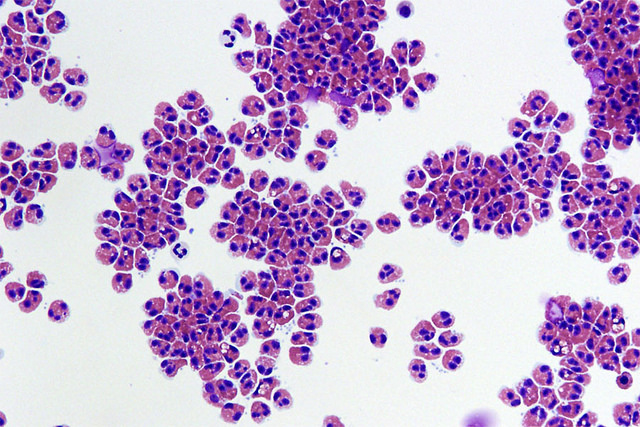The purpose of this study is to test the hypothesis that treatment with oral ALT-711 twice daily for 16 weeks will improve aortic distensibility, exercise tolerance, and quality of life in elderly patients with isolated diastolic heart failure (DHF), and that the improvements in exercise tolerance will correlate with the improvements in aortic distensibility.
Official Title
A Pilot Study Of ALT-711 In Elderly Patients With Isolated Diastolic Heart Failure: The DIAMOND Study.
Conditions
- Heart Failure, Congestive
- Dyspnoea
- Pulmonary Oedema
Study Type
Interventional
Study Design
Treatment, Non-Randomised, Open Label, Historical Control, Single Group Assignment, Safety/Efficacy Study.
Further Details
Study Start
July 2002
Eligibility & Criteria
- Ages Eligible for Study: 60 years and older
- Genders Eligible for Study: Both
- Accepts Healthy Volunteers: No
Inclusion Criteria
- Men or women ≥ 60 years of age.
- Diagnosis of congestive heart failure with one or both of the following criteria: a Heart Failure Clinical Score ≥ 3 based on the NHANES-I criteria and/or a history of either acute pulmonary oedema or the occurrence of 2 or more of the following with subsequent improvement with diuretic therapy and with no other identifiable cause: dyspnoea on exertion, paroxysmal nocturnal dyspnoea, orthopnoea, systemic oedema, exertional fatigue.
- Left ventricular ejection fraction ≥ 50% based on the baseline Doppler echocardiography test.
- Ability to provide written informed consent.
- Ability to comply with procedures specified in the study protocol.
Exclusion Criteria
- Valvular heart disease as the primary aetiology of congestive heart failure.
- Significant change in cardiovascular medication(s) < 3 weeks prior to the baseline visit.
- Uncontrolled hypertension.
- History of stroke, or any sequelae of a transient ischaemic attack (TIA), reversible ischaemic neurologic defect (RIND), or stroke, within the last 12 months prior to entry into the study.
- Cancer or other noncardiovascular conditions with life expectancy less than 2 years.
- Significant anaemia defined as a haemoglobin <11 gm/dL.
- Significant renal insufficiency defined as a serum creatinine >2.5 mg/dL.
- Significant hepatic insufficiency defined as an SGPT (ALT) or SGOT (AST) >2.5 times the upper limit of normal.
- Psychiatric disease (including uncontrolled major psychoses, depression, dementia, or personality disorder) or any additional condition(s) which, in the investigator’s opinion, would prohibit the patient from completing the study, or not be in the best interest of the patient.
- Presence or history of drug or alcohol abuse.
- Prior exposure to ALT-711 or use of any other investigational drugs within 30 days prior to screening.
- Known seropositivity for HIV or hepatitis C, or presence of hepatitis B surface antigen.
- Severe COPD requiring recurrent oral steroids, oxygen at home or more than one inhaler.
- Baseline echocardiogram demonstrating the presence of left ventricular ejection fraction <50%.
- Unstable or uncontrolled myocardial ischaemia, with no wall abnormality.
- Screening Familiarisation Exercise Test demonstrating the presence of any of the following findings: evidence of significant ischaemia (consisting of ECG finding of > 1 mm flat ST depression confirmed with echocardiogram wall motion, or wall motion abnormality or decrease in global contractility on echocardiogram, or inability to continue exercising due to significant chest or leg pain or any reason other than exhaustion/fatigue/dyspnoea, exercise SBP >240 mm Hg, DBP >110 mmHg, unstable haemodynamics or rhythm, or unwilling or unable to complete test adequately.
- Any contraindications to magnetic resonance imaging including but not limited to indwelling metal-containing prosthesis (orthopaedic, valvular, other), pacemaker or defibrillator, history of welding occupation (ocular metal debris), or uncontrollable claustrophobia.
Total Enrolment
20
Contact Details
Wake Forest University Baptist Medical Center, Department of Cardiology
Winston-Salem, North Carolina
United States, 27157-1045
All content and media on the HealthEngine Blog is created and published online for informational purposes only. It is not intended to be a substitute for professional medical advice and should not be relied on as health or personal advice. Always seek the guidance of your doctor or other qualified health professional with any questions you may have regarding your health or a medical condition. Never disregard the advice of a medical professional, or delay in seeking it because of something you have read on this Website. If you think you may have a medical emergency, call your doctor, go to the nearest hospital emergency department, or call the emergency services immediately.







